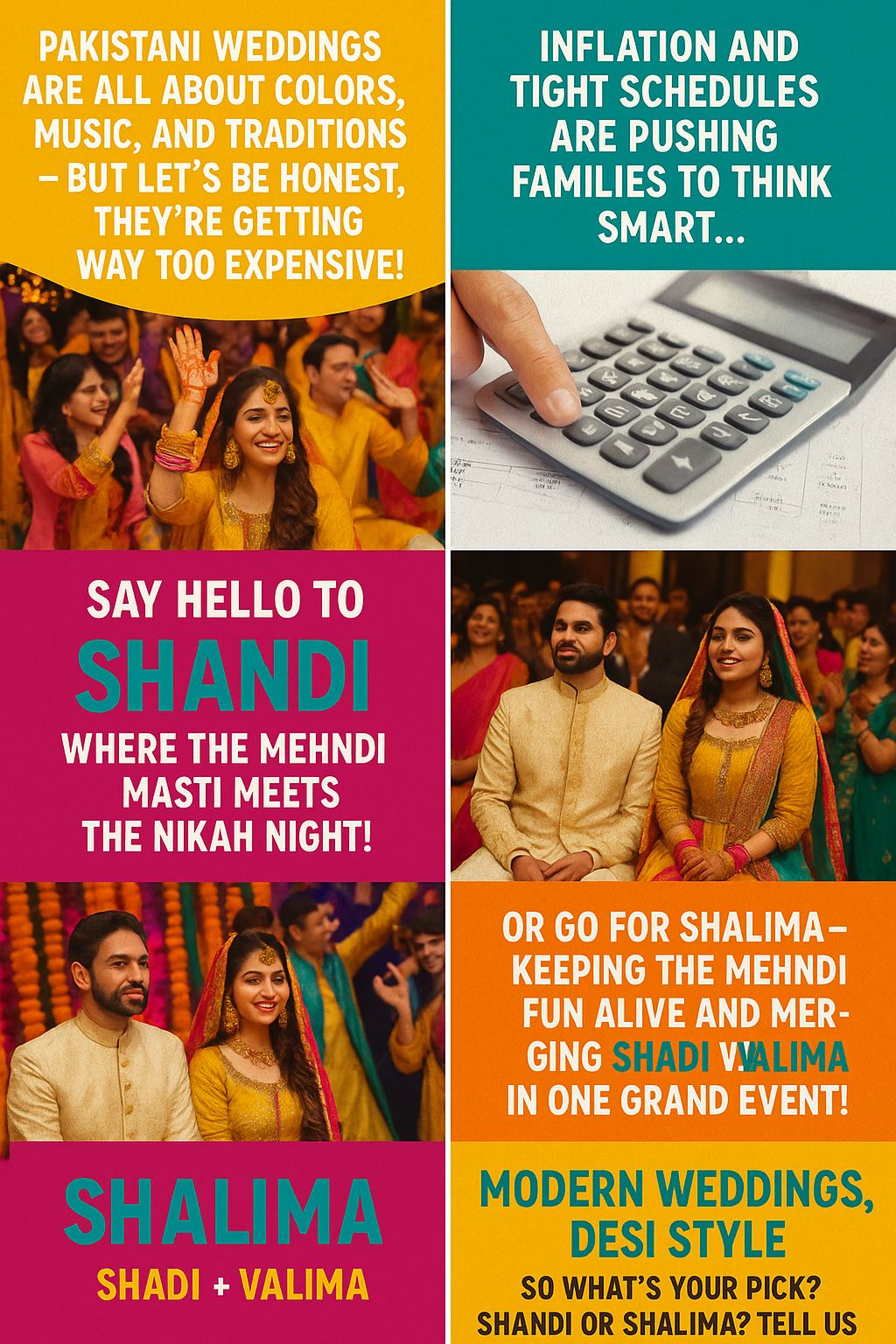Weddings in Pakistan have always been grand, vibrant, and full of life – a true celebration of love, family, and tradition. But as time flies and inflation hits harder than ever, even the most cherished customs are adapting. Today, we’re witnessing a quiet revolution in how weddings are celebrated across Pakistan. And if you’re planning a wedding soon, you need to know about it.
The Traditional Three-Day Affair
Let’s rewind for a moment. Traditionally, Pakistani weddings span three main events:
•Mehndi – A colorful night of music, dance, and celebration, often hosted jointly by the bride and groom’s families.
•Barat/Shadi – The main wedding day where the bride is officially handed over to the groom. This grand event is typically hosted by the bride’s family.
•Valima – The post-wedding feast hosted by the groom’s family, which is also the only event with a strong backing in Islamic tradition.
These three functions have been the heart of our wedding culture for generations. But times are changing – and fast.
Rising Costs, Changing Norms
Let’s face it – weddings have become expensive. From elaborate venues and designer clothes to endless food and décor, the cost of hosting three separate functions can be overwhelming for even the most financially stable families.
Add to that the fast-paced life of today, where both families and guests struggle to take out three consecutive days for celebrations. Time, money, and energy – it’s all being stretched thin.
And that’s where creativity steps in.
Enter “Shandi” and “Shalima”
To beat the pressure, more and more families are now merging events to simplify the entire wedding experience. And the best part? It’s working beautifully!
•Shandi – A combo of Shadi and Mehndi. Families keep the festive vibe of Mehndi alive while completing the Nikah or Rukhsati on the same day. This one-day celebration is fun, colorful, and cost-effective.
•Shalima – A mix of Shadi and Valima. In this version, the Mehndi is kept intact (because let’s be honest, who wants to miss those dhol beats and dance-offs?), while the wedding and reception are held together the next day in a single grand event.
These new formats are gaining popularity not just in cities, but also in smaller towns and even among overseas Pakistanis. It’s a practical solution, and guess what – everyone’s loving it!
Why This Trend Makes So Much Sense
1.Financial Relief: Families get to host a memorable wedding without emptying their savings or going into debt.
2.Time-Saving: In today’s fast-moving world, not everyone can afford three-day celebrations.
3.Guest Convenience: Attendees no longer need to plan multiple outfits or arrange travel and accommodation for several days.
4.Focus on Quality Over Quantity: Instead of stretching resources over multiple days, families can put their heart and budget into one or two unforgettable events.
But What About Tradition?
True, traditions are important. But so is adapting with grace. Valima, being the Sunnah event, still holds its place of respect. And even when events are merged, families find beautiful, creative ways to include all the essential rituals and blessings.
In the end, it’s not about how many events you host – it’s about the love, unity, and joy that bring two families together.
⸻
So, if you’re planning a wedding in the near future, maybe it’s time to think smart. Whether you go for a Shandi or a Shalima – do it your way, within your means, and with a heart full of celebration.
Because in Pakistan, no matter how big or small the wedding is – it’s always full of soul.













